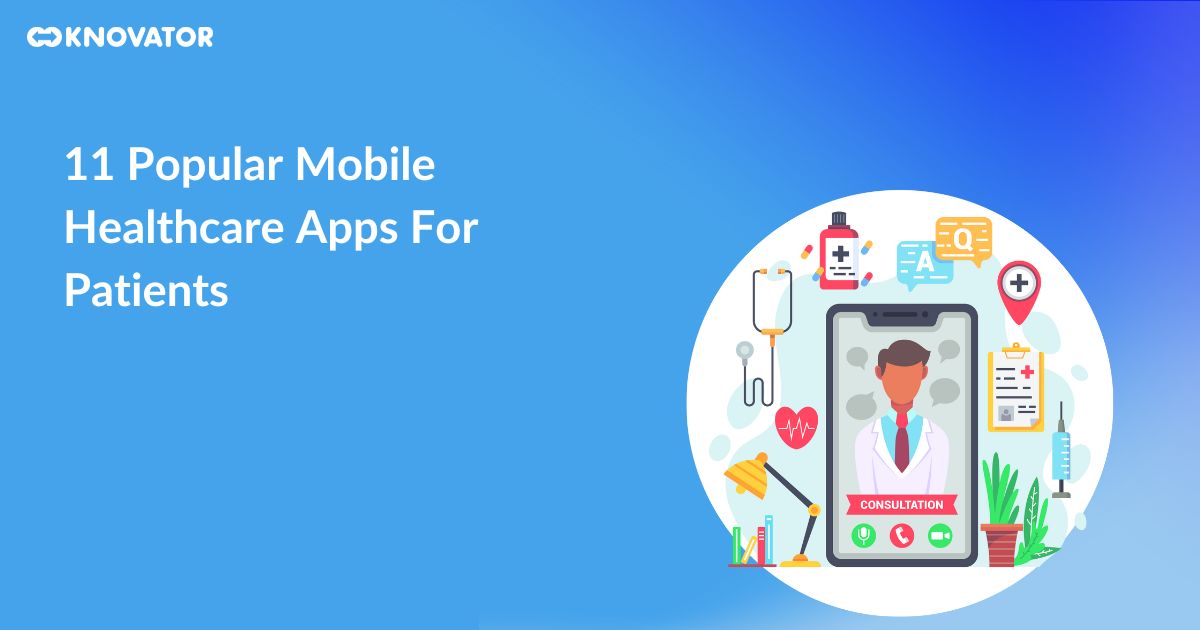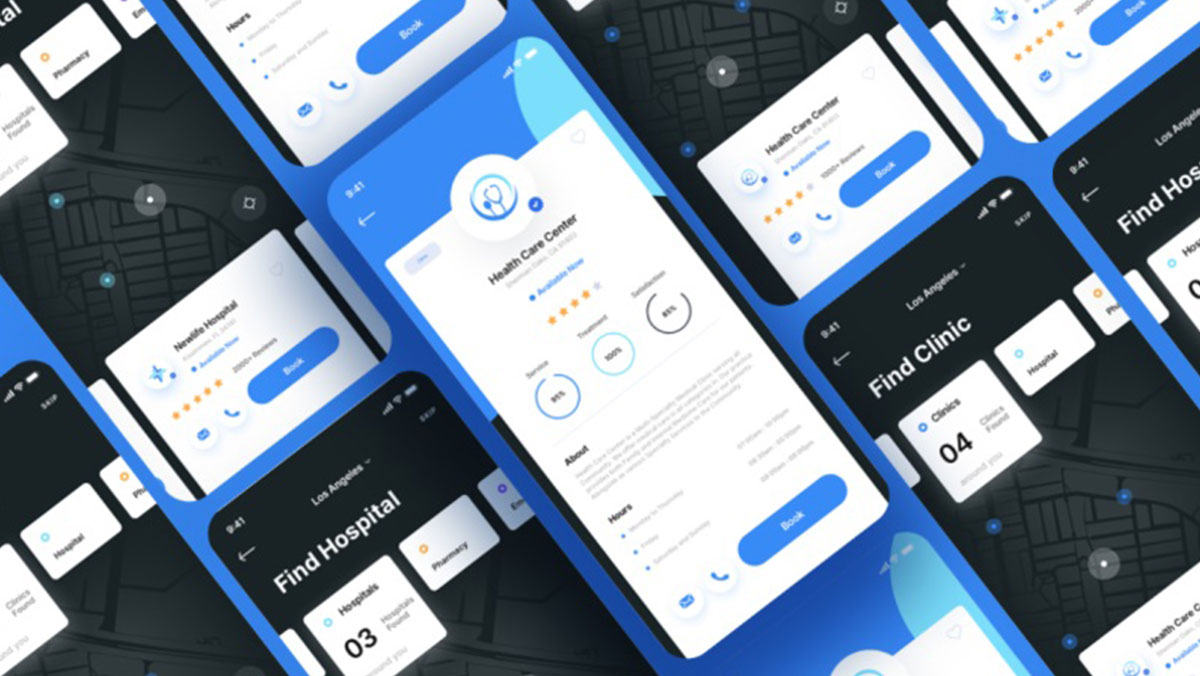Transforming Patient Experience with a User-Friendly Mobile App for Clinics
Transforming Patient Experience with a User-Friendly Mobile App for Clinics
Blog Article
The Future of Healthcare: Why Clinics Required a Mobile App Today
As the healthcare landscape proceeds to evolve, facilities face placing stress to adapt to patient assumptions for higher ease and access. The combination of mobile applications can serve as a vital technique for boosting individual interaction and improving operations.
Changing Individual Expectations
As the landscape of healthcare progresses, client expectations are undertaking a substantial improvement. Today's people are significantly seeking comfort, accessibility, and personalized care.
Additionally, clients are ending up being much more notified and encouraged, usually looking into problems and therapies on the internet before assessments. This heightened recognition is paired with a need for transparency in healthcare procedures, consisting of cost estimates and therapy alternatives. Because of this, suppliers are urged to adapt by embracing digital tools that enhance the individual experience.
The expectation for effective and timely interaction has never been higher, with several people thinking about responsiveness a crucial part of high quality treatment. mobile app for clinics. In this evolving landscape, healthcare organizations have to identify these transforming expectations and take advantage of mobile applications to cultivate an extra patient-centric approach, making certain that they not only fulfill however exceed the standards established by today's informed customers
Enhancing Person Engagement

Mobile applications facilitate interaction between individuals and healthcare companies, allowing real-time consultation organizing, reminders for medicine adherence, and direct messaging features. These capabilities not just enhance convenience however additionally develop a sense of accountability among patients. In addition, mobile apps can supply educational web content customized to individual needs, helping individuals better comprehend their problems and treatment choices.
The integration of gamification elements within healthcare applications can likewise encourage people to participate in healthy and balanced actions, enhancing favorable lifestyle adjustments. By tracking progress and fulfilling success, individuals are most likely to remain devoted to their wellness objectives. Eventually, improving person involvement with mobile applications causes boosted wellness outcomes, greater person contentment, and an extra joint healthcare experience. Clinics that prioritize this element will likely see a significant influence on the quality of treatment delivered.
Improving Center Workflow
Simplifying facility operations is essential for boosting process effectiveness and maximizing client treatment. The application of mobile applications can substantially lower management problems, permitting healthcare companies to concentrate much more on client interactions. By automating consultation scheduling, client check-ins, and invoicing procedures, facilities can lessen wait times and improve overall functional effectiveness.
Mobile apps additionally assist in real-time accessibility to person documents, enabling medical care professionals to make educated choices promptly. This immediacy not only enhances the high quality of care yet additionally lowers the likelihood of mistakes connected with misplaced or obsoleted information. In addition, leveraging mobile technology sustains an extra well organized approach to managing patient follow-ups and therapy plans, making certain that no vital steps are overlooked.
This allows for timely replenishment and helps stay clear of disruptions in patient care due to equip shortages. By incorporating these capabilities into their day-to-day procedures, clinics can produce an extra cohesive and reliable atmosphere, ultimately leading click here for more to enhanced individual results and fulfillment.
Improving Interaction Networks
Reliable interaction is regularly pointed out as a keystone of top quality health care shipment. In today's hectic clinical environment, mobile applications can dramatically improve communication networks between facilities, clients, and doctor. By incorporating mobile apps into their operations, centers can help with real-time communications, making certain that patients receive prompt info regarding their consultations, examination results, and treatment strategies.
Mobile applications additionally equip patients to connect directly with their health care groups via protected messaging features. This straight line of communication cultivates a feeling of involvement and permits instant clarification of worries, which can lead to better adherence to treatment methods. Push notices can advise individuals of upcoming consultations or medicine routines, decreasing no-show rates and boosting general health results.

Staying Affordable in Health Care
In a quickly progressing healthcare landscape, organizations need to focus on development and versatility to maintain an affordable side. The integration of mobile applications into healthcare solutions is no much longer optional; it is vital for centers intending to improve client involvement, enhance operations, and boost overall solution distribution.
As individuals significantly learn this here now rely upon electronic platforms for health and wellness monitoring, centers that stop working to adopt mobile technology danger falling behind. A well-designed mobile app can provide attributes such as consultation scheduling, telemedicine examinations, and access to clinical records, offering individuals with convenience and promoting loyalty.

Competitors are likewise purchasing mobile options, so staying ahead requires constant enhancement and remaining notified about technical developments. Clinics have to not just execute mobile applications however likewise take part in regular updates and refinements. Ultimately, the successful assimilation of mobile technology will certainly identify forward-thinking healthcare companies and established the benchmark for patient-centric care in an electronic globe.
Verdict
To conclude, the integration of mobile applications in centers is crucial to resolve the advancing landscape of individual expectations. By enhancing patient involvement, simplifying procedures, and boosting communication networks, centers can dramatically enhance health and wellness results. Furthermore, the adoption of mobile innovation positions facilities to remain competitive in a progressively digital healthcare environment. Inevitably, the calculated implementation of mobile apps stands for a crucial action toward delivering available and visit the site individualized medical care, consequently meeting the needs these days's equipped patients.
Inevitably, boosting client interaction via mobile applications leads to improved health and wellness results, higher person contentment, and a more joint healthcare experience.Mobile applications additionally help with real-time access to patient documents, allowing medical care experts to make educated choices rapidly. In today's busy medical setting, mobile applications can significantly enhance interaction networks between clinics, individuals, and healthcare providers.Mobile applications additionally equip clients to interact straight with their healthcare groups through protected messaging functions. Eventually, the calculated implementation of mobile applications represents a vital action toward providing tailored and easily accessible healthcare, thereby satisfying the requirements of today's encouraged patients.
Report this page